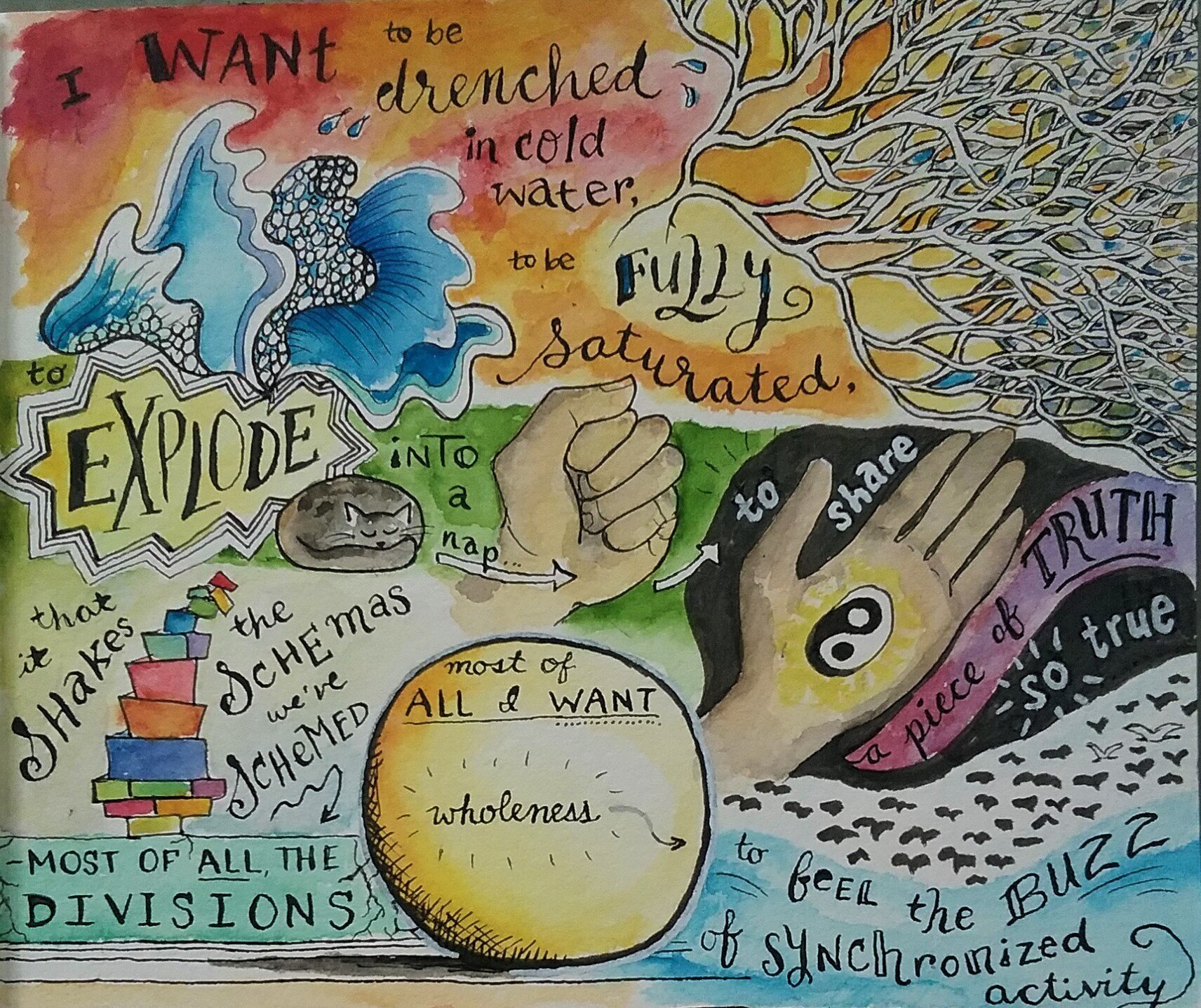Distractions Incorporated
We have such a limited attentional budget that spending it listening to external sounds leaves less to allocate to the internal sounds of our mental chatter.
The opposite of not caring
I'm not a snob about contemplative practice. I see zero shame in scrolling through Instagram during moments like these. I'm not trying to maintain monastic levels of composure throughout the day.
I just decided to explore what would happen if I fell back on what has proved paradoxically comforting in the past when waiting for potentially terrible news.
Completely out of my comfort zone
“Life is so very messy! I have spent most of my life trying to control this messiness with all my imperfections. Recently I discovered that no matter how hard I try, it would bring me more anguish in my attempts to control it. Everything is temporary and some things are just out of our control!“
Kalyn Jolivette
We Remember that We Forget
“Ralph Waldo Emerson, toward the end
of his life, found the names
of familiar objects escaping him.”
Lawrence Raab
It Seems Too Simple
Without direct experience, the impact of habitual mindfulness practice seems too simple to be beneficial.
I Want Wholeness
“I want to be drenched in cold water,
to be fully saturated,
to explode into a nap,
to share a piece of truth so true
that it shakes the schemas we've schemed —
most of all the divisions.”
Jane Klinger
What Mothers Have Known All Along
“Mindfulness is about stepping outside yourself, looking at yourself, and knowing that it’s going to be okay.”
Dr. Jeffrey Smith
Feeling Better
It wasn’t until I stumbled clumsily toward a daily mindfulness practice in my mid-thirties that I discovered that there were ways I could get better at feeling my feelings.
Before intentionally working on my attentional skills, I had no idea how often I escalated my unpleasant feelings and zipped past the pleasant and subtler ones.
The kind of self-awareness that mindfulness exercise develops has helped me become more objective about my subjective experiences.
Focus on Emotionally Neutral Spots
"Although emotional sensations can arise anywhere in the body, they are much more likely to arise in the belly, chest, throat, or face. These are the emotional hotspots in the body, the regions where emotional sensations can get huge. That means that other areas are much less likely to host gigantic emotional sensations, which turns out to be a useful and convenient thing."
Michael Taft
The Taste of Embarrassment
One of the things I’ve found so remarkable about the approach to mindfulness I practice and teach, is the way it has gradually, yet significantly changed the way I relate to the physicality of my emotions—including the unpleasant ones.
Riddled with Dilemmas
A mindfulness teacher needs to sell you on the possible outcomes of consistent practice but also has to steer you back again and again to the slippery path that leads to them.
The Difference Between Meditation and Rumination
What’s the difference between meditating on a problem and ruminating?
This Difficulty Feels Like This
Here's a great strategy from Phillip Moffitt for working with unpleasant emotions .
This difficulty feels like this
“When a difficult situation or memory arises, it is essential that you be able to self-soothe in order to respond skillfully.”
Phillip Moffitt
Something Much Larger than Just Trying to Be Happy
“Happiness is not a large enough word for the deeper satisfactions that human beings are searching for and will search for and have searched for through recorded time.”
David Whyte
Breath Pleasure
Shinzen Young created this breath awareness exercise to develop concentration, sensory clarity, and equanimity. It is also designed to foster the cultivation of an ongoing mindfulness practice by providing both short-term and long-term benefits.
Seeing for Yourself What Works
“There is a middle way here between the extremes of rigidity and passivity, one that offers a more legitimate form of meditation.”
Jason Siff
Setting the Stage for Nature to Do Its Job
"We can’t always have complete experiences, but sometimes we can and with practice, we can have them more and more."
Shinzen Young



















